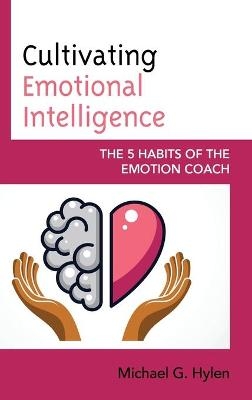
Cultivating Emotional Intelligence
Rowman & Littlefield (Verlag)
978-1-4758-6300-0 (ISBN)
As humans, we desire connection with others. And while most connections remain surface level, this book investigates how teachers can make a deeper connection with students for the purpose of growing emotional intelligence and teaching positive social skills. If educators are going to do so, it will be necessary to reframe traditional school practices that focus on promoting positive behaviors through a discipline system based upon consequences that fail to address the behavior in a redemptive manner.
Dr. Michael G. Hylen currently serves as the coordinator of doctoral studies and associate professor of education at Southern Wesleyan University. Prior to joining the higher education ranks, he enjoyed a 25-year career in K-12 education where his most extensive work was as an alternative high school principal for students who struggled in traditional school settings.
Preface
Acknowledgments
Chapter 1. Introduction
About the Book
The Journey: Why Emotion Coaching
Failure is Not an Option: It’s Not Just About the Five R’s
Can We Truly Teach Emotions and Character? Aristotle Thought So
Chapter 2. Understanding Emotional Intelligence and Behaviors
Emotional Intelligence: what is it and why is it important?
The Impact Parents, Teachers, and Other Adults Have on our EQ Development
The Ultimate Goal: Emotional Intimacy
Bonding and the Role of the Teacher
Chapter 3. Self-awareness, Society, and Growing Emotional Intelligence
What’s Wrong with Me? Why Should I Care?
The Importance of Self-awareness
Culture and Definitions: Their Impact on EQ
Chapter 4. Teaching and Cultivating Emotional Intelligence
Teaching andComing to a Frightening Conclusion
It’s Not Fair! The Importance of How We Define Fairness
Rigid Equality or Restorative Justice
Chapter 5. Reframing Our Perspectives
Introduction
The Dismissive Response
The Disapproving Response
The Laissez-Faire Response
The Emotion Coaching Approach
When Emotion Coaching is Not Appropriate
Chapter 6. Habit 1: Cultivating Trust
What Do We Mean When We Talk About Trust?
Building Trust
Teaching Trust
The Power of Self-trust
Rebuilding Trust
Chapter 7. Habit 2: Awareness of Student Emotions
Introduction
The Second Part of the Process
Students Who Repress or Suppress Emotions
What About Students Who Are Overly Expressive with Emotions?
And What About Civility?
Chapter 8. Habit 3: Listening with Empathy
What More Can Be Said about Empathy?
Understanding Empathy
Listening with Empathy
Empathy vs Sympathy: What Difference Does It Make?
Chapter 9. Habit 4: Labeling Emotions
Introduction
Labeling versus Telling
Understanding the Intensity Levels of Emotions
How Does Helping Label Compare with Affect Labeling
Wrapping It All Up
Chapter 10. Habit 5: Problem Solving
Introduction
First Things First: Setting Limits
Next Steps: Identifying Goals
Problem Solving: Finding a Positive Solution
References
About the Author
| Erscheinungsdatum | 11.08.2021 |
|---|---|
| Verlagsort | Lanham, MD |
| Sprache | englisch |
| Maße | 161 x 228 mm |
| Gewicht | 440 g |
| Themenwelt | Geisteswissenschaften ► Psychologie ► Pädagogische Psychologie |
| Sozialwissenschaften ► Pädagogik | |
| ISBN-10 | 1-4758-6300-4 / 1475863004 |
| ISBN-13 | 978-1-4758-6300-0 / 9781475863000 |
| Zustand | Neuware |
| Informationen gemäß Produktsicherheitsverordnung (GPSR) | |
| Haben Sie eine Frage zum Produkt? |
aus dem Bereich


